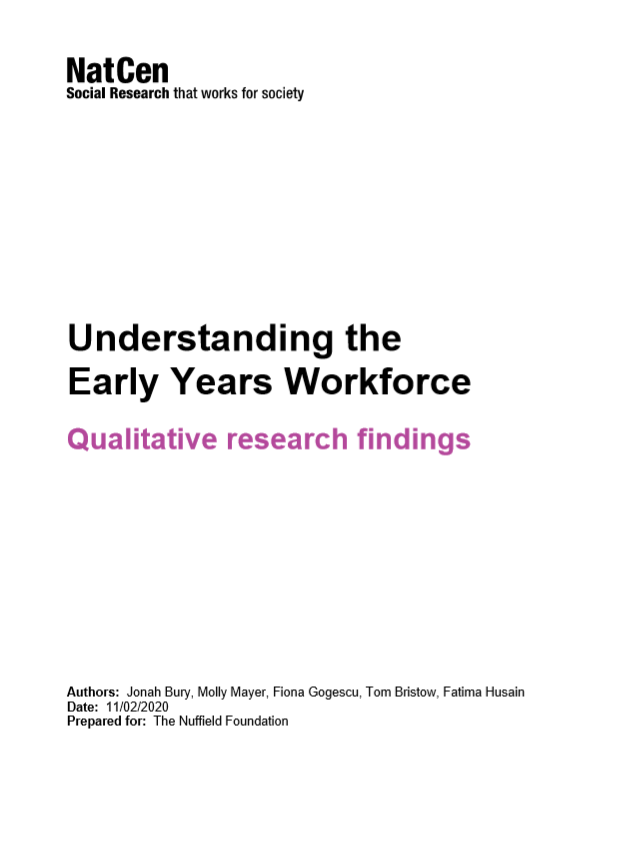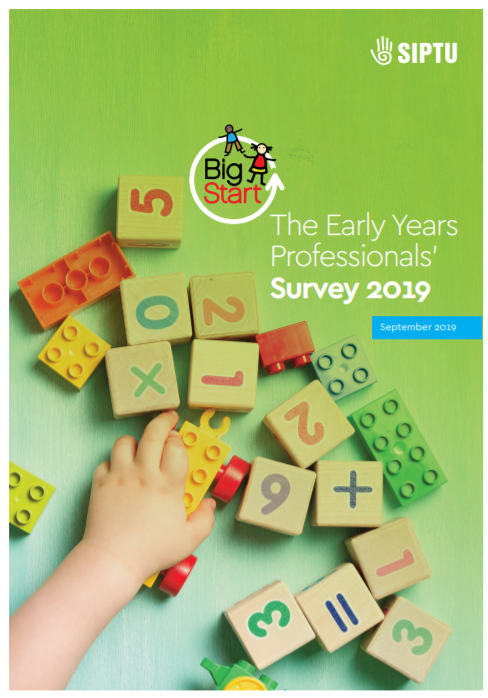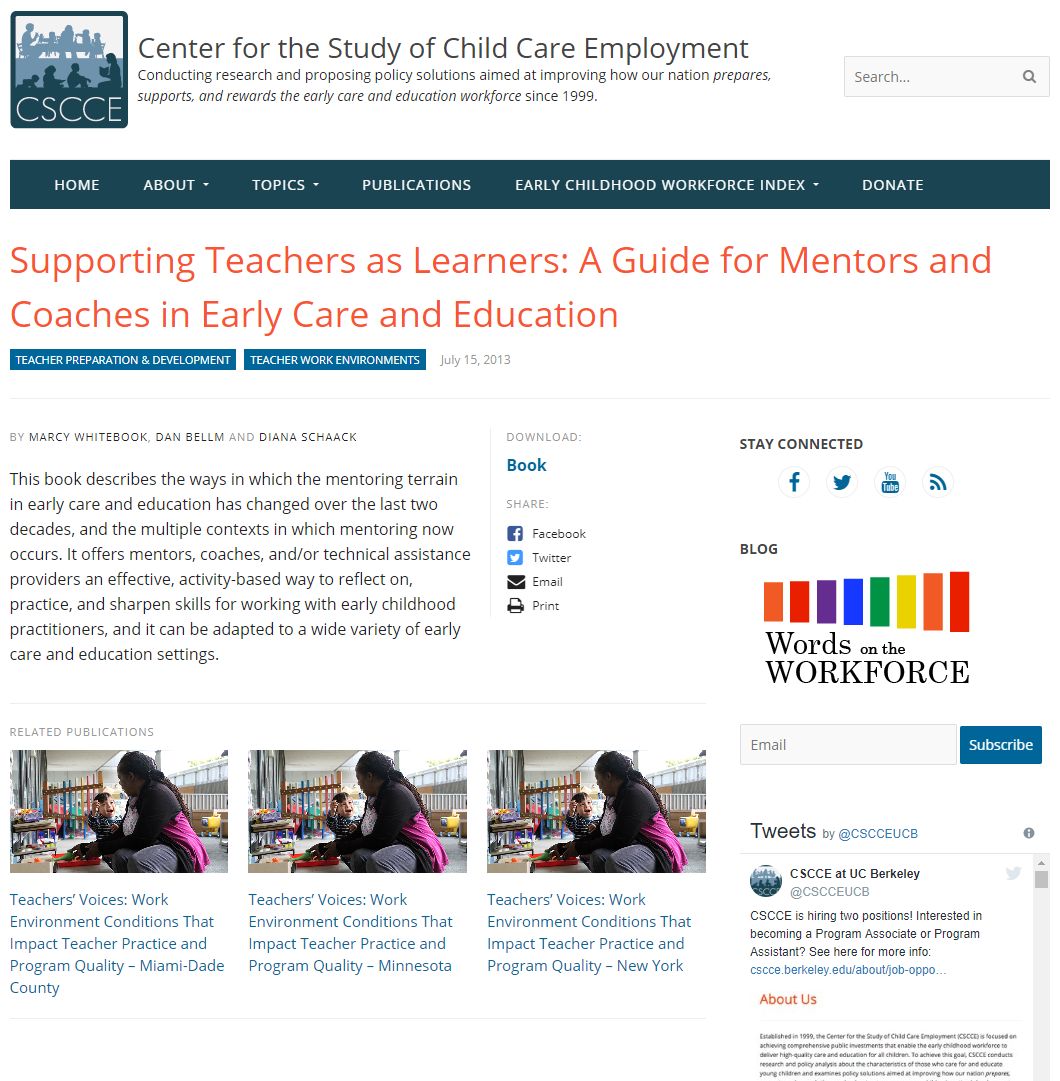Understanding the Early Childhood Workforce: Qualitative research findings

In recent years, although there has been a sizable increase in take-up and provision of early years education in the UK, the sector has struggled to recruit and retain practitioners. This has been partly driven by limited development opportunities and low pay. This qualitative study is part of a multi-strand research project conducted in collaboration with the Education Policy Institute (EPI) and funded by the Nuffield Foundation. The study sought to improve understanding of recruitment and retention challenges in the sector and explore perceptions of ‘quality’ within the workforce.
Methods
The research comprised two elements carried out concurrently:
- Provider case studies – 9 settings were purposively selected as case studies. Across these 23 in-depth interviews were conducted with managers and practitioners.
- Timeline interviews – 19 in-depth interviews tracing professional journeys into and through the sector were conducted with early years professionals
2020
www.natcen.ac.uk










